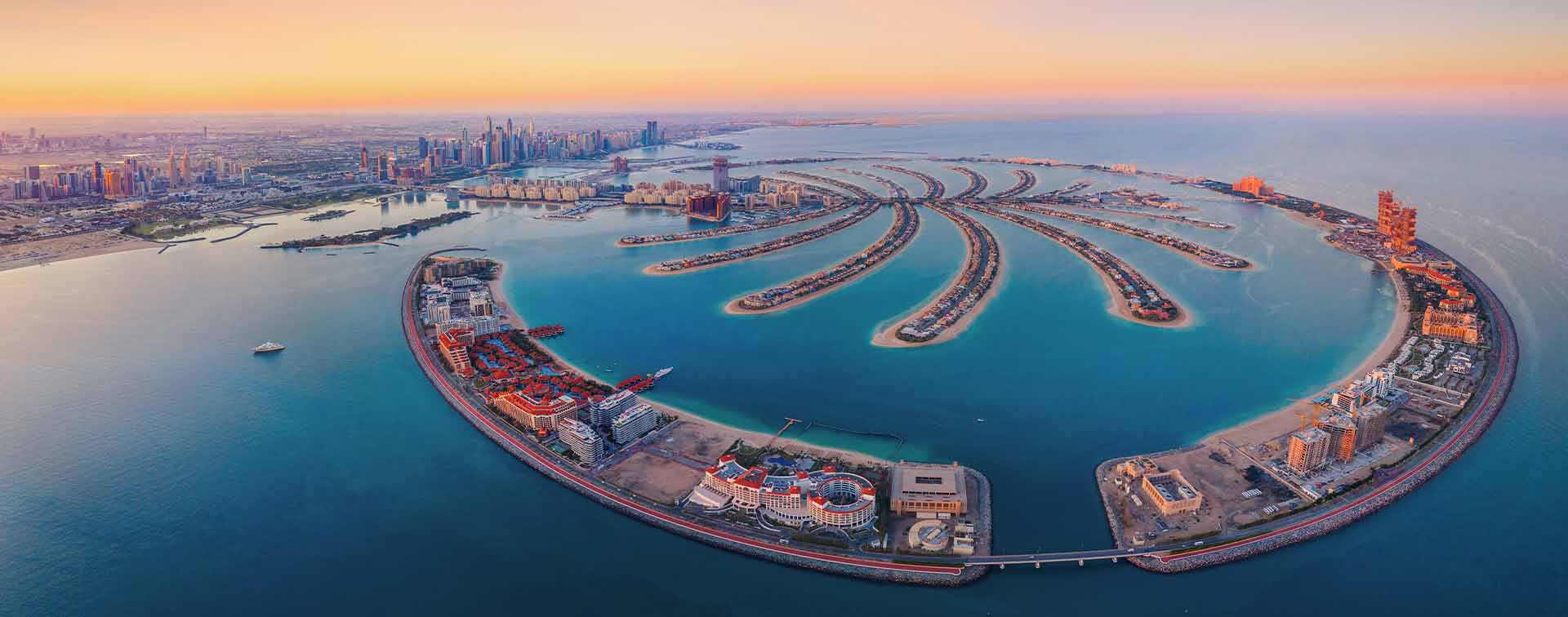
Thomas Scott is Group Head of Real Estate at Henley & Partners.
In the context of enduring turbulence and uncertainty, wealthy investors have recognized the value of diversifying their domiciles at the same time as their investment portfolios. The premium sector of the global real estate market has shown significant growth, with increasing numbers of investors opting for residence and citizenship by investment programs. Collectively known as investment migration programs, they allow investors to unlock the classic benefits of real estate assets while prioritizing quality of life for their families by increasing the possibilities of where they can live, work, and study — now and for posterity.
The factors traditionally driving international real estate investment decisions are broad and varied, as is the growing list of sought-after destinations available via investment migration programs. Aside from potential gains over the lifetime of the asset, an additional property can provide rental income in a strong and stable currency and offer geographical diversification via permanent residence or another citizenship, while at the same time offering distinct lifestyle or business advantages.
The Best Investment Migration Real Estate Index highlights the 16 most important residence and citizenship by investment programs offering real estate investment as a pathway to residence rights or citizenship acquisition. It uses over 30 parameters and over 300 data points to score and compare these highly attractive program options according to key considerations for investors such as the reputation of and quality of life in the host country, GDP, the minimum real estate investment amount, potential rental income, associated property costs, application processing efficiency, the real estate holding period, residence requirements, any restrictions, and salability, as well crypto-friendliness, which is gaining in importance among global investors.

With so many options, it can be a challenge for investors to negotiate what is on offer, but using this interactive index they are able to compare real estate-linked investment migration options according to the factors that matter most to them and their families to identify the most suitable destinations for portfolio diversification, both in terms of real estate and domicile.
With scores from all categories tallied, future-focused UAE tops the index. The Emirate of Dubai in particular, is a major business hub with a well-established reputation as a top investor-friendly real estate investment location. It scores highly for rental income potential, and the price of property per square meter is lower than other major international centers. Property acquisition in the UAE by foreign nationals is galvanized by the country’s reputation for being a safe and secure environment in which to reside, attractive employment conditions, strong economy, and progressive outlook in terms of industries such as renewable energy. Various government initiatives have recently been introduced to improve livability and support residence by investment programs, including enhanced purchasing benefits.
Spirited Spain is placed 2nd in the overall rankings, bolstered by its economic strength, with the highest score in the GDP parameter. One of Europe’s most sought-after property investment destinations, Spain offers a range of locations, from urban to island. The Mediterranean country is ideal for those seeking out beach or city living as well as others who prefer a more tranquil village lifestyle. Foreign nationals can invest in residential, commercial, or land acquisition, with no limits.
The 3rd spot on the index is occupied by stunningly beautiful Montenegro, which has emerged as a key second-home and property-investor market in the Mediterranean — not least due to its ability to cater to everyone. Investors can choose from glamorous coastal resorts to new establishments servicing increasingly popular mountain and ski areas in the north. With no required holding period or residence requirement for investors, Montenegro’s highest scores are in these two parameters, while it also has excellent scores for investment amount and rental income. Applicants to the Montenegro Citizenship by Investment Program are exempt from the country’s restrictions on dual citizenship, making this an attractive option to investors who see Montenegro as an ideal, well-priced gateway to Europe and the associated networking and business opportunities throughout the region
Transcontinental Turkey takes up 4th place overall, with its highest scores in investment amount and residence requirements parameters. Benefits of investing in the Turkey Citizenship by Investment Program include government incentives such as lower purchasing taxes and VAT exemption. Real estate prices have remained competitive, adding to Turkey’s appeal. As an economic, financial, and political hub between Europe, Western Asia, and the Middle East, Turkey is strategically well placed to appeal to an expanding range of investors.
Proudly sharing 5th spot with Thailand, the Portugal Golden Residence Permit Program continues to outstrip all others in terms of enquiries received for good reason. The country’s luxury real estate market showed resilience during the pandemic, and this is expected to continue as investors prioritize quality of life. With its highest scores in investment amount and salability, as well as crypto-friendliness, investing in real estate in this EU member state is a wise move that many global investors, particularly those from the USA, have already made.
Turning to the eastern hemisphere, comparatively low property costs and access to the booming Asian market solidify Thailand’s position as an attractive proposition for those looking to invest in prime real estate. Thailand scores highest in residence requirements and investment amount, and the multiple benefits of the Thailand Elite Flexible One Program, which include full residence rights for up to five years and an attractive tax regime, add to the appeal of this highly desirable investment destination.
In 6th position overall is Greece, where the Greece Golden Visa Program offers investors a range of benefits including the opportunity to rent out investment property in one of Europe’s most popular regions. Interest in Greece’s Golden Visa Program has seen a healthy uptick over the past three years, not least due its affordable real estate investment option and the fact that no physical residence is required. Greece also offers flexible investment opportunities, a long-term investment in an EU country, and a highly desirable lifestyle. Between Athens and its plethora of islands, the Mediterranean country presents a truly diverse real estate offering. Greece’s government has realized the importance of real estate investment and is considering new incentives to assist foreign investors in acquiring residential space as part of its Golden Visa Program.
Grenada in 7th spot offers a range of government-approved real estate development options including resort homes, estates with ocean frontage, and luxury studios as well as an educational real estate project. The island nation hosts a large student population presenting opportunities for secure returns on rental property. The picturesque ‘Spice Island’ holds great appeal for families, individuals, and those looking to invest for the purpose of enhanced travel freedom, as Grenadian passport holders enjoy visa-free access to 144 destinations, including China, Hong Kong, Singapore, the UK, and Europe’s Schengen Area.
Cyprus — a growing international hub with excellent infrastructure — is 8th on the index, with its highest scores for investment amount and property costs as well as crypto-friendliness. Demand for second homes and an increase in interest in beachfront apartments and purpose-built community areas have buoyed the property industry, ensuring that foreign investors, who can invest in residential or commercial units, find value and have a range of choices.
A further three Caribbean island nations occupy the next two rankings — Dominica and St. Lucia share 9th place, while St. Kitts and Nevis is 10th by a narrow margin. All three island nations score highly in investment amount (with minimum real estate investments of USD 150,000 to USD 300,000), residence requirements (none require residence), and crypto-friendliness (due to their supportive legislation). Pre-approved, government-vetted Dominican real estate provides foreign nationals the assurance they are investing in the island’s vision for a greener future. Acquisition serves up both aesthetic and financial rewards — a beautiful residence in a tranquil environment matched by a potentially healthy return on investment. There are no restrictions on acquiring residence in business-friendly St. Lucia, where Canadian, European, UK, and US investors predominate.
With year-round sunshine, the islands of St. Kitts and Nevis offer another Caribbean refuge. As the transformation of the economy from sugar cane dependence to alternative revenue streams gathers pace, an evolving real estate sector, comprising a diverse range of traditional and modern architecture, is emerging. The peaceful ambiance of the dual-island nation combined with favorable property prices and returns on investment bolster St. Kitts and Nevis as an attractive option in which to seek out a second home. Henley & Partners surveys St. Kitts and Nevis’s property market annually to monitor appreciation, and since real estate prices remain low compared to neighboring Caribbean islands there is substantial room for capital appreciation.
Yet more idyllic islands are in contention to attract affluent real estate investors and make strong showings across several categories. Antigua and Barbuda in 11th place enjoyed a strong tourism industry pre-pandemic, spurring many visitors to expand their property portfolios by acquiring real estate here. Indeed, foreign investment through property acquisition has become an important addition to the dual islands’ economy, providing stability during downturns in other industries. Antigua’s top scores are in investment amount, associated property costs, restrictions, and crypto-friendliness, which combine to make this a well-priced opportunity for a minimum real estate investment of USD 200,000 from an approved project.
Malta’s Granting of Citizenship for Exceptional Services by Direct Investment Regulations (S.L. 188.05) allow for the granting of citizenship by a certificate of naturalization to foreign individuals and their families who contribute to the country’s economic development, and real estate investment, whether purchase or rental, is a requirement. The resilient property market in the majestic Mediterranean island, which ranks 12th, has been a notable success story in recent years. Whether pursuing alternative residence or an additional citizenship, foreign investors are attracted to Malta’s traditional-meets-modern aesthetic, with heritage buildings complementing contemporary architecture. While the real estate market appears to be stabilizing, there is still a consistently high demand for quality residential real estate in Malta.
Further to the west, in the Channel Islands, real estate acquisition in 13th-ranked Jersey — popular for its low rate of income tax and lack of estate duties — falls under Jersey law, simplifying processes and administration. Those purchasing property, which is a requirement for acquiring residence by investment, are granted the same status as other inhabitants, creating a fair and highly respected ownership model. To achieve High Value Residency status and be eligible to purchase property in Jersey, prospective applicants must also make a major contribution to the island’s tax revenues.
Last in the ranking in 14th spot, but certainly not least, is the stunning, multi-cultural Indian Ocean island gem Mauritius, which scores highly in residence requirements, with none in place, investment amount, with a minimum real estate acquisition of USD 375,000, and associated property costs, with low fees and duties. In two to six months, investors can enjoy tropical island living with added incentives through a strong economic, social, and political infrastructure, including access to Southern African Development Community benefits.
The pandemic may still be with us, but we are quickly adapting to the newly emerging reality. We have taken stock and considered our options. Many have relocated, with many more planning to do so. Investment migration real estate makes sense for your family’s continued wellbeing — along with your real estate asset you gain access to new jurisdictions. By making informed choices now and investing in strategic locations, you can decide on the course of your future. Rankings aside, each country represented in the Best Investment Migration Real Estate Index presents multiple opportunities — the choice is yours. Explore the data and find the best real estate-linked investment migration option for you.